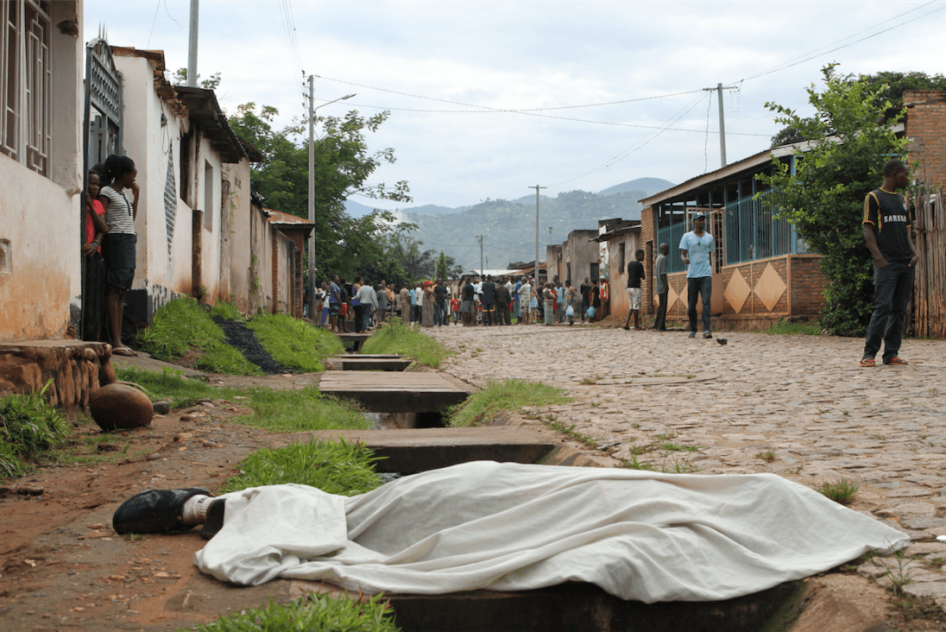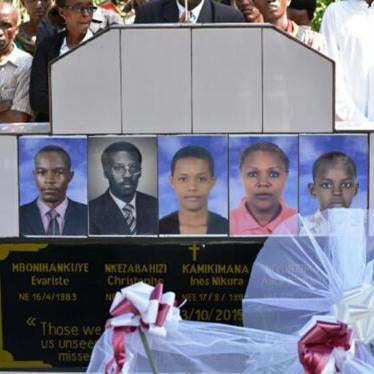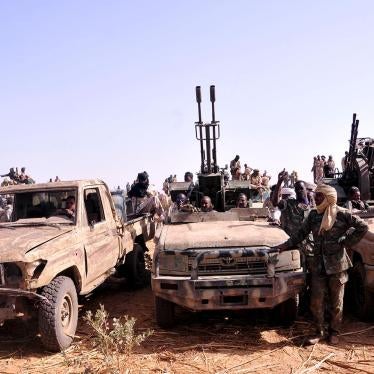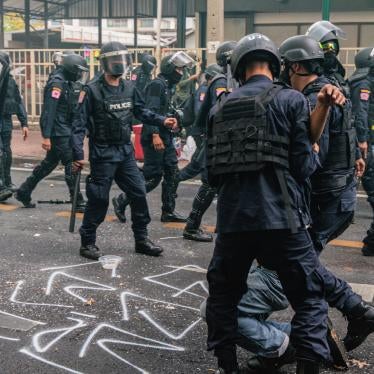(Nairobi) – Burundi has taken a major step backward by officially withdrawing from the International Criminal Court, Human Rights Watch said today. Other African ICC members should distance themselves from Burundi’s withdrawal and affirm their support for justice for victims of the gravest crimes.
On October 18, 2016, President Pierre Nkurunziza signed legislation calling for Burundi’s withdrawal from the ICC. Burundi’s government claimed the court is an instrument of powerful countries used to punish leaders who do not comply with the West.
“Burundi has failed to hold people responsible for brutal crimes to account and has sunk to a new low by attempting to deny victims justice before the ICC,” said Daniel Bekele, Africa director at Human Rights Watch. “This latest move only confirms Burundi’s continuing disregard for human rights and the rule of law.”
The decision to withdraw came after the United Nations Human Rights Council resolved, on September 30, to create a commission of inquiry into human rights abuses in Burundi since April 2015 that would identify alleged perpetrators and recommend steps to guarantee that they are held accountable.
Burundi submitted notification of its withdrawal to the UN secretary-general, as required under the ICC’s Rome Statute for formal withdrawal. Burundi’s withdrawal comes after South Africa announced on October 21 that it had notified the UN secretary-general that it was withdrawing from the ICC. Gambia announced on October 24 that it also intends to withdraw.
South Africa’s announcement was met with a call from activists based across Africa for African governments to continue to support the ICC as a crucial court of last resort. Senegalese Justice Minister Sidi Kaba, who is the president of the ICC’s Assembly of States Parties, called for South Africa and Burundi to reconsider their decision. Civil society groups and an opposition party in South Africa also have challenged the withdrawal in the country’s courts, arguing that it failed to comply with South African law.
The ICC is meant to act as a court of last resort, stepping in only when national courts cannot or will not prosecute the most serious international crimes. Hundreds of people have been viciously tortured, killed, raped, or disappeared in Burundi since 2015. But the Burundian justice system, deeply corrupt and manipulated by ruling party officials, almost never conducts credible investigations or brings those responsible for these crimes to justice. Hundreds of arbitrarily arrested people have been detained on trumped-up charges.
Under the ICC’s Rome Statute, withdrawal does not come into effect until one year after the state has formally announced it to the UN secretary-general. Earlier this year, ICC Prosecutor Fatou Bensouda opened a preliminary examination into possible crimes against humanity in Burundi since April 2015.
Since 2009, the ICC has faced a backlash from a vocal minority of African leaders focused on claims that the court is unfairly targeting Africa. While all of the ICC’s investigations to date, with the exception of Georgia, have been in Africa, the majority have been initiated at the request of an African government.
However, the ICC works in a global landscape where the disparity of political, economic, and military power is stark. A number of the most powerful countries, including three permanent members of the UN Security Council – Russia, China, and the United States – and their allies have not joined the court and have thus been able to avoid ICC scrutiny. The permanent members of the UN Security Council have used their veto privilege to block referral to the ICC of situations desperately in need of justice in countries that are not ICC members, including Syria.
Although they have too often been silent in the face of attacks on the ICC, many African governments have continued to quietly support the court, cooperating with investigations and referring new situations to the court.
In July, several African ICC members – Côte d’Ivoire, Nigeria, Senegal, and Tunisia – took an important step in joining Botswana, a vocal ICC supporter, to expressly oppose an AU call at its summit meeting for ICC withdrawal. Burkina Faso, Cape Verde, the Democratic Republic of Congo, and Senegal also entered reservations to the July summit decision.
Activists across Africa have, since 2009, joined with international groups to call for African governments to support and strengthen the ICC instead of undermining it, most recently in response to South Africa’s stated intention to withdraw.
“The ICC remains the only path to justice for many victims of the gravest crimes when national courts are unable or unwilling to try these cases,” Bekele said. “African countries should distance themselves from ICC withdrawal, and reaffirm their commitment to accountability for atrocities in Africa.”








